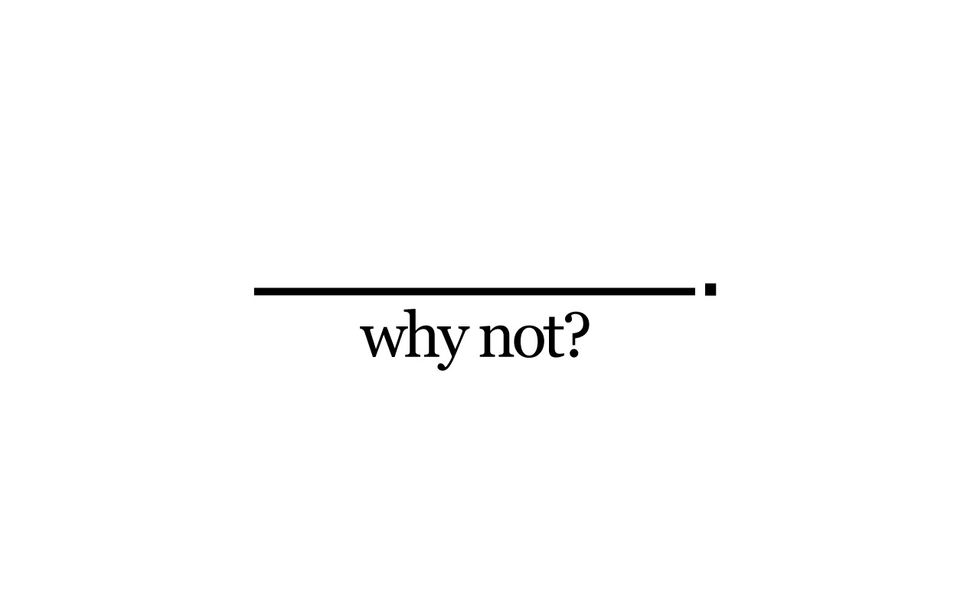It is Friday night. There you are, sitting in your dorm, when you receive a text from a friend inquiring about your attendance at a party later that evening. You have an abundance of research to do, you have work tomorrow afternoon, and you have not been to bed before midnight for the entire week. Yes, you are very capable of going, but do you feel like it? Probably not. You reply to your friend with your honest answer.
The next morning, you wake up with a horrible hangover and none of your work is done. *Record scratch!* When did that happen? Why did you go if you insisted you did no want to? Perhaps, because your friend insisted you should regardless of how you felt. Yikes!
Take another case-scenario. You return to your dorm with your partner after a long evening of painting the town, laughing at the newest comedic film, and shaking your head as you empty your wallet at dinner. Your partner has been very flirtatious all night, implying the desire to engage in sensual activities, maybe even more than that. You, however, could just watch Netflix with a bowl of ice cream until both you and your partner crash. You express your wishes to refrain from any sensual or sexual activities with your partner, but an hour later, your partner is sound asleep while you are up crying silently, wondering why you feel so violated.
You have probably gathered by now that this article is about peer pressure and the severe importance of not applying it to another person. Though I encourage people to stay true to themselves - never straying from what they want and what makes them comfortable for anyone - I acknowledge that peer pressure can be difficult to defend against.
Too many times have I heard people, even those I would consider my best friends, use vulgar terms to degrade somebody else in our group who does not wish to partake in the activities the former wants to do. Take it from the girl who has had it happen to her, it hurts to hear your friends call you out for making what you believe is the right decision. Now, I could not care less about what others think about my choices because I know only I can determine what will make me happy and at most ease, but there are some people who find this difficult. I cannot say that I blame them, either. To hear it from a stranger is one thing, but to hear it from a friend whose opinions are highly valued is heartbreaking. When someone turns down a night out, when someone turns down a drink, that should be instantly respected. No means no! It is one of the oldest rules in the book. To ask, "why not", instantly says, "I did not respect your initial wishes. I am going to continue pressuring you." Not only does "why not" impose a form of pressure, it also asks a question that is not necessarily anyone's business. If a person wishes to explain why he or she is unwilling to attend, then they will do so on their own time.
As a solution, remind the person that the offer is always open and that he or she is welcome if they were to change their minds. I find myself constantly reminding my friends who turn down my invites that they are always free to join if their schedules free or if suddenly they want to attend. It does not guilt them, it does not invalidate their response. It simply allows them to remain included at their own will.
The next scenario not only deals with peer pressure, but also touches on the very important topic of consent. Regardless of gender and regardless of relationship, whether two people be platonic, romantic, sexual, or marital, consent is necessary. If a partner does not feel like engaging in certain activities, then those activities are not to be done. Consent needs to be from both parties. Also, if either party, regardless of gender, is under the influence of alcohol or drugs, not even yes means yes! This is very important, too. Sometimes, a drunk person will initiate behavior upon a sober person. It is on the partner that is sober to assume their consent is not genuine, even if they initiated the behavior.
Now, on to the peer pressure. When a partner asks "why not?" after receiving no for an answer, it instantly forces the other partner to second guess his or her response. Not to mention, trust disintegrates, which is necessary for any relationship to develop. Without trust, no encounter is fun - sensual or not. The other partner might change their response after your pressuring them, but then is that really consenting? When you love someone, all you want is to give them what will make them happy. Asking "why not" implies that a sensual/sexual encounter is all that would please a partner. It says, "this is what I want. I want it so badly that I will disregard your wishes and continue to ask until you give it to me." If your partner loves you or cares for you in any way, they may feel obliged to change their answer in order to make you happy. Do NOT ask "why not?" It is unwarranted, pressuring, over stepping, and does not obtain genuine consent. Also, it instantly loses trust in a relationship, which is necessary for any sensual/sexual encounter to occur anyway.
There are several scenarios that this philosophy stands true. I would love to open a discussion with more examples.
My plea to you: consider next time someone says no - to a night out, to a drink, to a sensual/sexual encounter - to let them be. No one deserves to be uncomfortable, let alone disrespected to the point of violation. This is why not to ask "why not?"








































